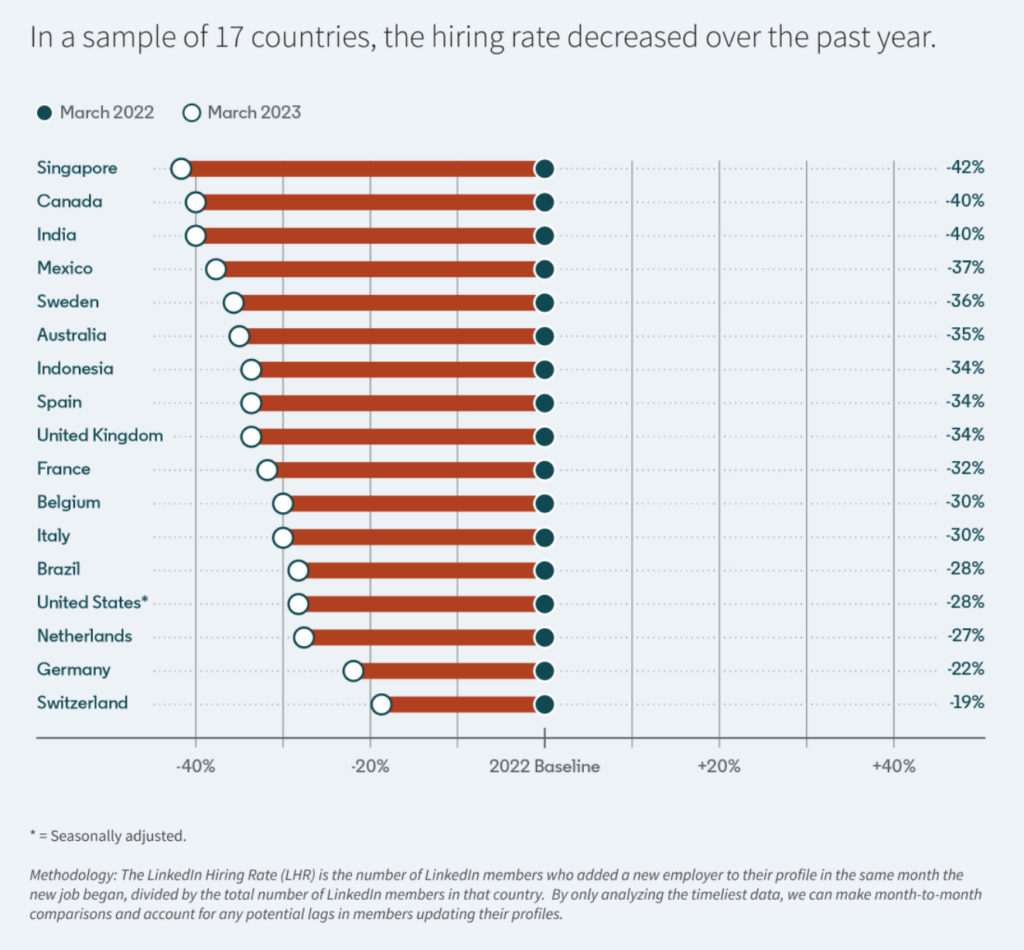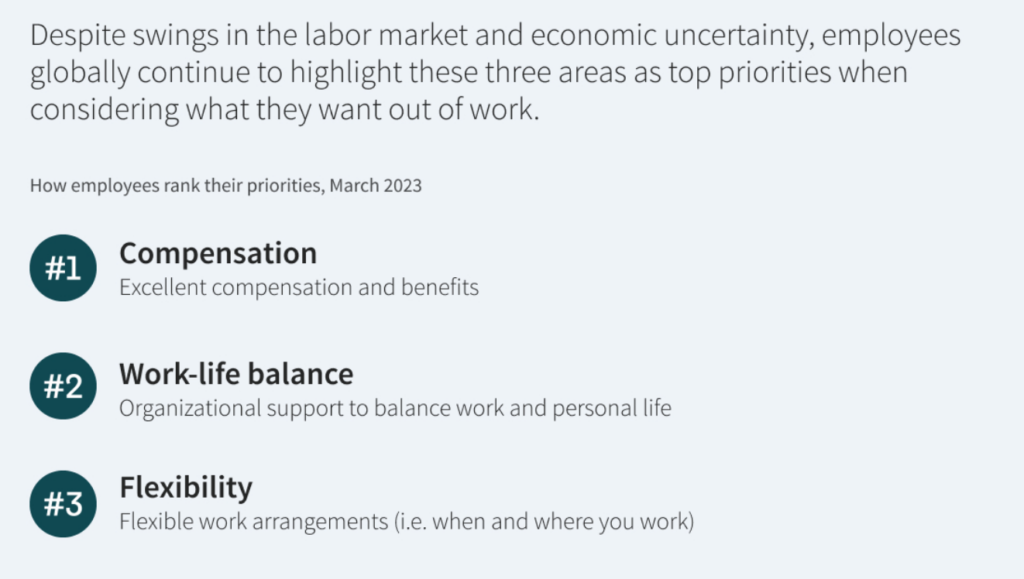It feels like the world is burning, and no one can agree on anything. I know that I feel this way because I make a conscious choice to go on social media, and the algorithm targets me with content that increases this feeling. That’s just the reality we live in. We are getting fed a non-stop diet of content that isn’t necessarily good for our psyche.
The biggest learning I had this year wasn’t about my social media use. I’ve known about that for a while. I’m a technologist, so I understand why I’m fed what I’m fed. My learning came late in the year as conference season came to a close. As I looked back on the year and the interactions I had with people, I realized something.
I interacted with hundreds, if not thousands, of people throughout the year, and almost never did those interactions include politics or what I would call stressful or uncomfortable conversations. Most of the conversations were about HR or Recruiting with other professionals who were passionate about HR and/or Recruiting. Men, women, people who identify as something other, gay, straight, queer, etc., old, young, black, white, Asian, Indian, etc.
So, I know that many, if not a majority, of the folks I positively interacted with throughout the year most likely had many different ideologies than I did. Yet, we still had enjoyable and educational conversations. We left feeling like we had a connection that we could call on if needed. Never once did I, or someone I was speaking with, make the conclusion that we couldn’t listen and learn from each other because we were talking about something we had in common.
That was my big learning for 2023 and something I’ll take into 2024.
We do not focus enough on what we have in common with each other. We focus too much on the few things we might have differing opinions on.
I met and connected with so many great people in 2023 all across the world. Amazing people who are now a part of my global network of friends and professionals that I will rely on. People of all kinds who I value based on our commonalities, not our differences.
The world, our politicians, our technology, Artificial Intelligence, and often our friends and family are working to rip us apart. Begging us to lean into our differences like it’s a badge of honor. Wanting us to believe that a few differences are much more important than an overwhelming amount of ideas and philosophies we can agree on.
Some of the closest people in my life are the exact polar opposite of me politically. I actually think this makes me smarter and helps me keep an open mind. I’m able to do this because I also know, that while we might think of some things differently, we think about way more stuff the same. And it’s these common beliefs that build a strong relationship.
As you think about your goals and dreams for 2024, I would love to challenge you to do just one thing. Before judging someone (and I’m the king of judging folks!), first try to come up with three things you have in common and verbalize those to that person. Watch where the conversation goes. You will most likely create more friendships. Learn new things about those around you and yourself. You will probably be a bit happier and less stressed.
What I noticed throughout most of 2023 is that I kept running into new people who seemed lonely. I think the loneliness stems from us believing that everyone is different from us when we are mostly the same. In reality, you’ll never find anyone who is the same as you, but we are made to believe that is some kind of worthwhile goal. It’s not. Everyone is different from you. The key is to find out what we have in common, and what we share.
The world wants us to hate each other. I don’t buy that garbage. I’m the hugger guy. In 2024, I’m going to purposely try to find things between us that are common and keep our focus there. I’m really interested in where that will lead us. I already know what the opposite has been doing.


